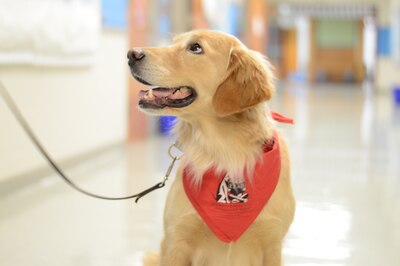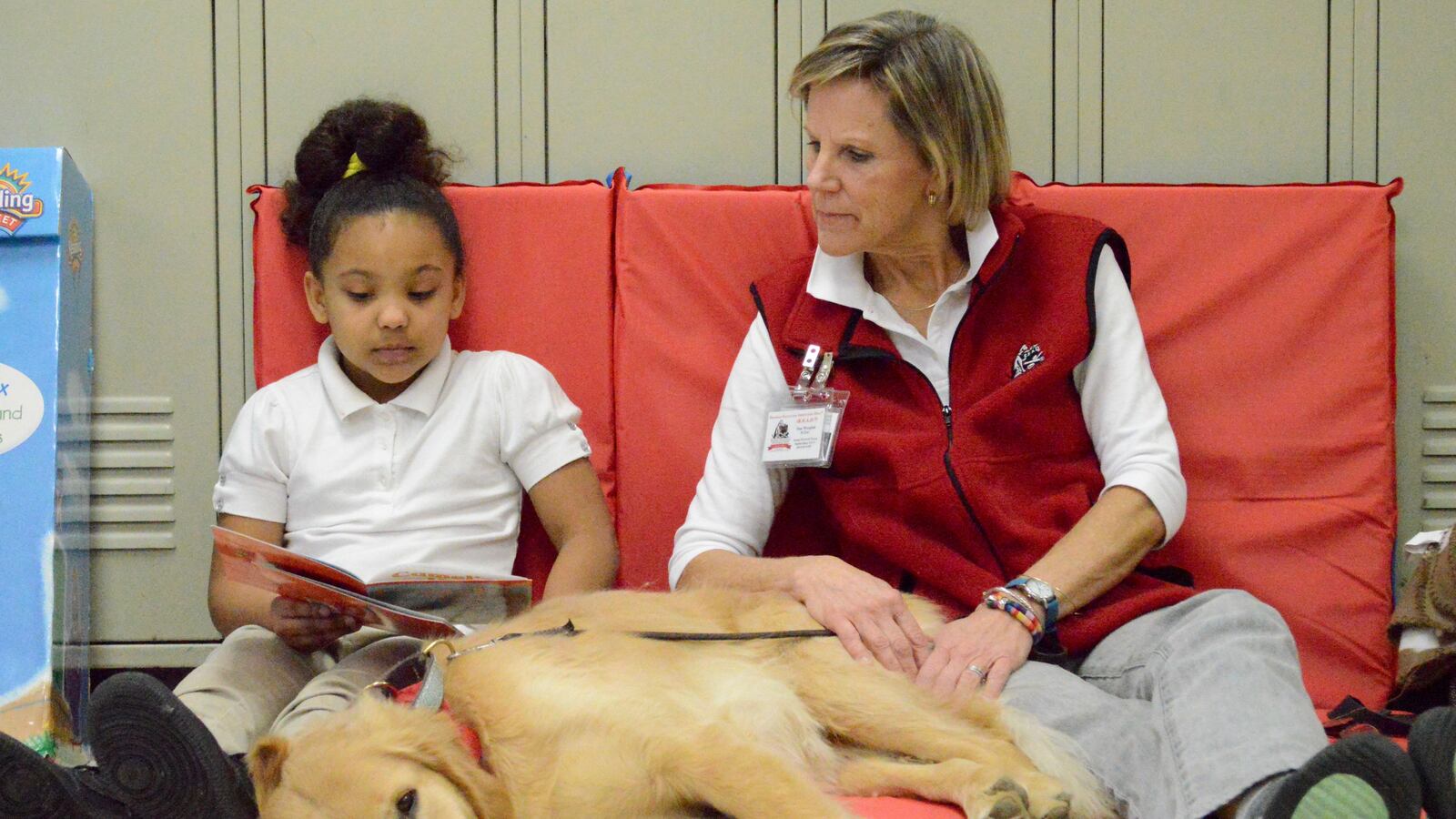When it comes to reading out loud, it helps to have a good listener. And 7-year-old Aaleyah Stone seems to have found one in Zoe, a Golden Retriever who lies quietly beside her on a reading mat at Keystone Elementary School.
With one hand holding a book and another stroking the fur on Zoe’s back, Aaleyah slowly reads a story about camels to the 4-year-old therapy dog. Meanwhile, Zoe’s handler, Pam Westphal, gently prompts the youngster through difficult words.
Aaleyah was not a confident reader when she began reading twice a month this school year to Zoe and two other therapy dogs that visit Keystone. But along with other second-graders identified as struggling readers, she has gradually improved with the help of her captive canine audience.
“I love the dogs, I just pretend that I’m reading to my doggie at home,” explains Aaleyah, who says she prefers reading to dogs over humans.
Students participating in the Keystone program are given a stuffed dog to take home, and sign a pledge promising they’ll read to their “dog” every night.
Zoe and her handler are part of Reading Education Assistance Dogs, or R.E.A.D, a national program founded in Utah in 1999 and sponsored in Memphis by Mid South Therapy Dogs.
The program is in its second year at Keystone, and teachers say they’re noticing a difference in reading development for students who participate.
Cathy Bickers, a second-grade teacher who has worked at Keystone for 25 years, said working with therapy dogs motivates her students like she’s never seen before. “We’ve had reading achievement incentives in the past, sure, but I would say this really gives the kids an immediate reward,” she said.
Bickers’ assessment aligns with researchers who say students who read to dogs retain better reading skills than those who read to humans because their motivation levels are dramatically higher, according to a 2011 study by the Tufts Cummings School of Veterinary Medicine in Massachusetts.
Other researchers note that the presence of a friendly dog can lower blood pressure and reduce stress when reading.
The idea was brought to Keystone by Karen Buck, a Shelby County Schools social worker who learned about the program and thought it could help young readers who were falling behind their peers.
On last year’s TCAP tests, about 20 percent of Keystone students scored below basic in reading skills, and another 20 percent scored proficient. The vast majority were somewhere in the middle.
Across Tennessee, improving reading scores for elementary-age students has proved challenging in recent years while math and science scores have increased. In response, Gov. Bill Haslam recently launched an initiative by the Tennessee Department of Education to target early readers for development.

Reading programs such as R.E.A.D. align with such initiatives by targeting struggling early readers.
Currently, only a handful of schools in the Memphis area participate, but Buck says she’d like to see the program expand.
“This program isn’t any additional cost to Shelby County Schools,” said Buck, who also works at three other schools in the district. “It’s the result of volunteers and grants from Mid South Therapy Dogs, and the kids absolutely love it.”


